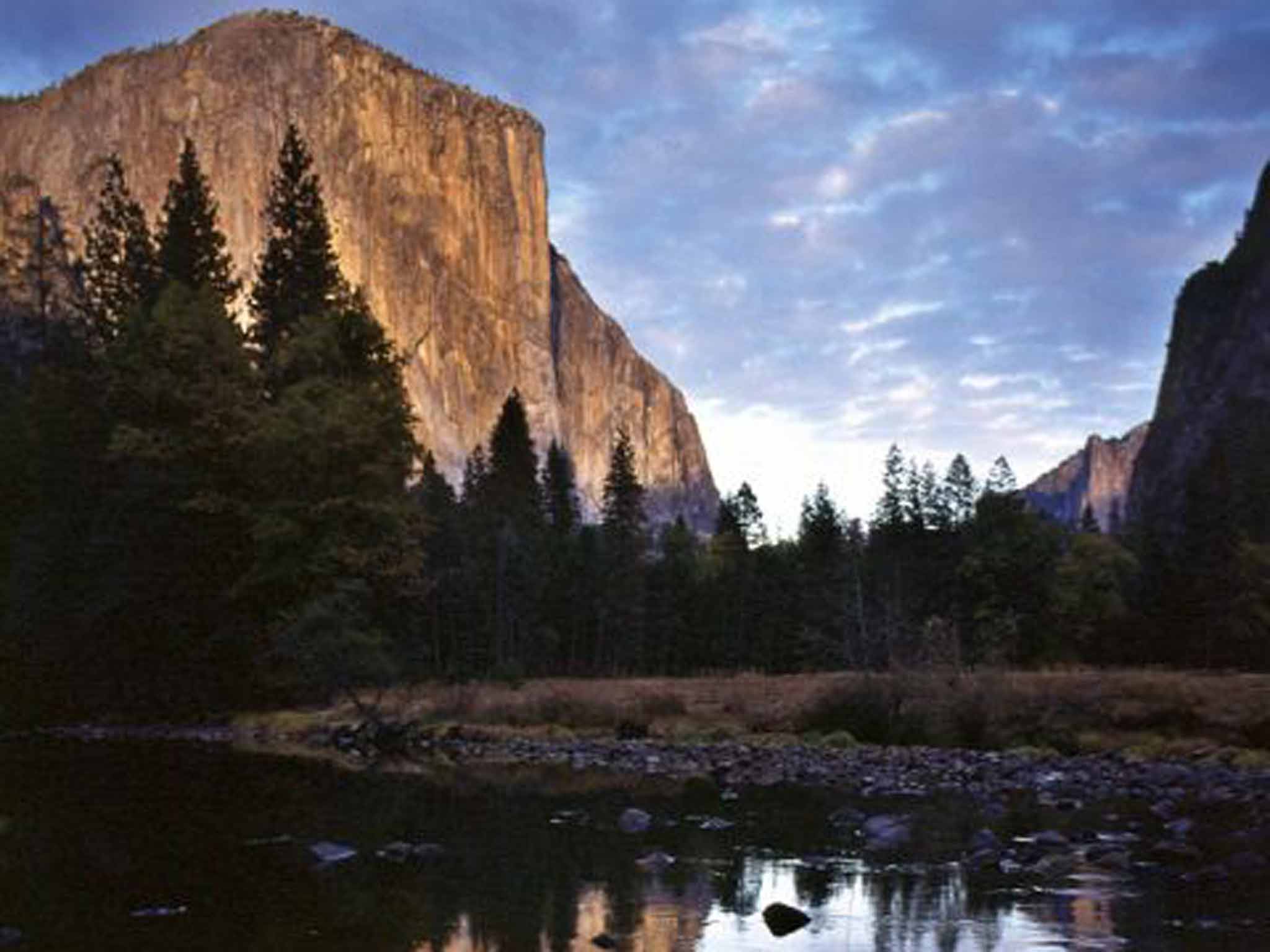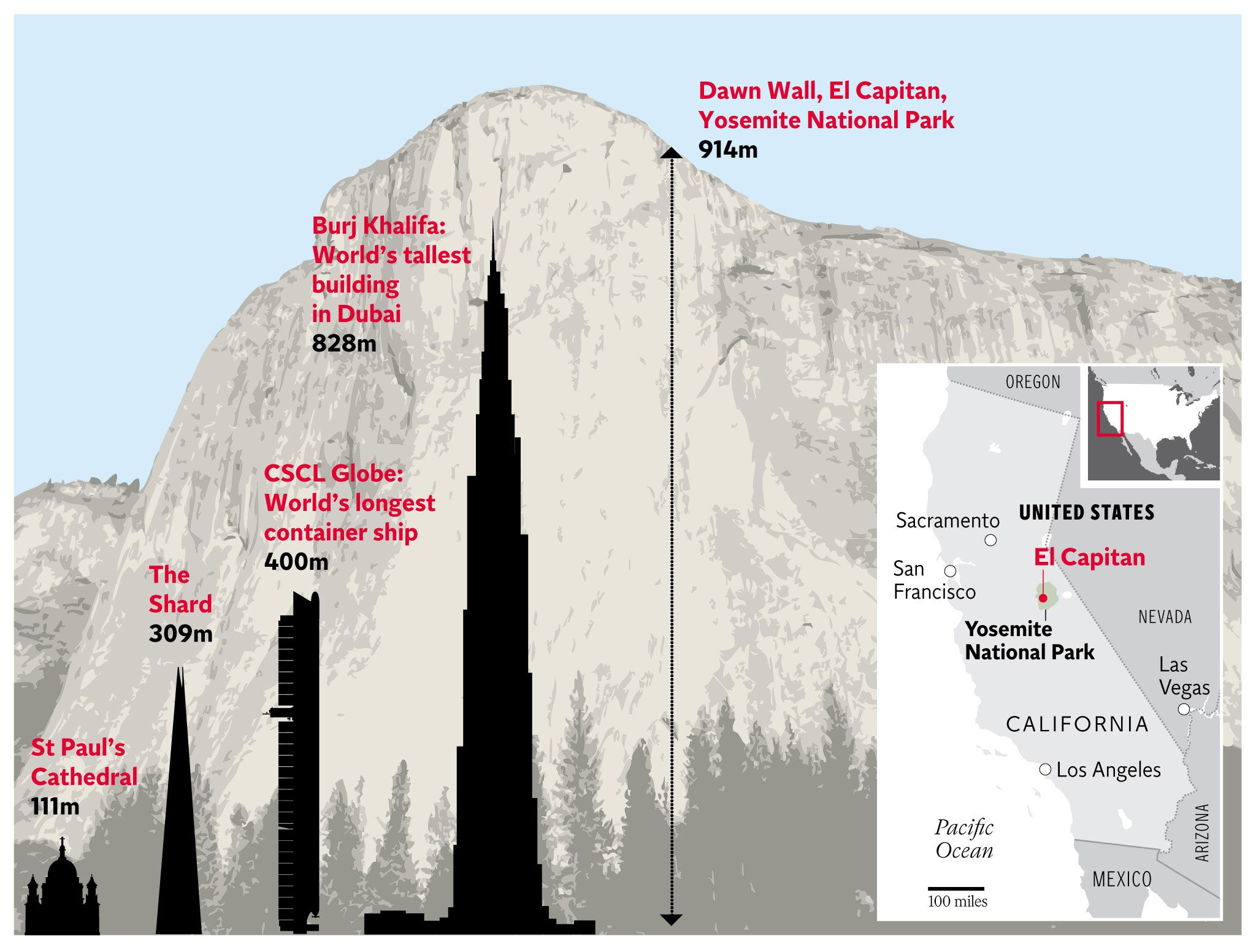Climbing the toughest cliff in the world: The two men on course to make history
Simon Usborne is among the millions who are gripped by their progress

As many of us peered over boulder-like stomachs at unfamiliar keyboards yesterday, news came from California of two men doing something remarkable. Visible only to the keenest eyes, linked to the most flexible necks, Tommy Caldwell and Kevin Jorgeson applied torn fingertips to granite as they attempted one of the greatest - and highest - challenges on Earth.
El Capitan, a 900-metre rockface in Yosemite National Park, is a storied cliff. In the more than 60 years since its first conqueror proved that it could be scaled, dozens of routes have been set up its flanks. But the one they call Dawn Wall has remained out of reach even to the most tenacious free climber, thanks to a surface that is as smooth as polished plaster.
"It's the hardest rock climb in the world," says Leo Houlding, who in 2012 nearly perished before becoming the first British climber to complete a free ascent of "El Cap". "You break a cliff like this into pitches, which are basically rope lengths. This is 30 climbs, one on top of the other. Ten of them are world-class standard and two are as hard as anything anywhere."

Free climbing means no help, and no feet on the ground. Everything is hauled between pitches, including hanging tents (portaledges) for shelter. Eating and resting like nesting bats, Caldwell and Jorgeson have lived like this since 27 December, inching upwards with the strength of toes, fingertips and collective will. They hope to complete the climb of their lives on Friday, after two weeks of suspense. "Caldwell is the most accomplished El Cap climber, and he's been preparing for this for seven years," adds Houlding, 34. "That gives you a sense of how goddamn hard this is."
By the time the Americans started their climb, at least one had attempted each of the 30 following pitches. The challenge is stringing the pitches together in an unsupported climb. Apart from the ropes that they bolt to the rock as they go, and their smartphones, they are alone.
Another measure of the challenge can be found in the record books. In 2012, Alex Honnold, another American, scaled The Nose, the most established and much grippier way up El Cap, in two and a half hours. Remember that this monolith, however you climb it, is three times taller than The Shard, and has steeper sides. "The hardest pitches on Dawn Wall are harder than I've ever climbed," Honnold told the New York Times yesterday.
Crunch time for the pair is now, as they tackle those pitches. They were high on success after completing pitch 14 on New Years Day, but have struggled. Tricky pitch 16 demands a sideways leap between tiny holds. "Battling," was all Jorgeson could tweet with a free hand on Sunday.
Houlding made a similar attempt on El Cap's "prophet" route in 2012 when he and his partner were caught in a storm. "Then it was about survival," he recalls. "We were trapped in a flooded portaledge for 80 hours. Our phones stopped working and I was worried that the flysheet would tear. We would have died overnight." Later, the men dried off and continued, sometimes using only an inch-wide crack for purchase. "We managed not only to survive but do one of the hardest bits of climbing I've done," he adds. But why? As he admits, these are pointless endeavours. "We create rules and challenges, but that is the point. You set a challenge and you try to achieve it. If they do this it will be the proudest moment of their lives."
Photographed from the ground on Sunday by Tom Evans, an El Cap veteran turned cliff chronicler, the Americans featured only as a speck on the wall. On his way back to the foot of the rock yesterday, Evans was hopeful. "I think they will eventually succeed as they have not just the skills but, most importantly, the two things on which all great endeavours hinge," he said, "determination and tenacity".
Join our commenting forum
Join thought-provoking conversations, follow other Independent readers and see their replies
Comments
Bookmark popover
Removed from bookmarks